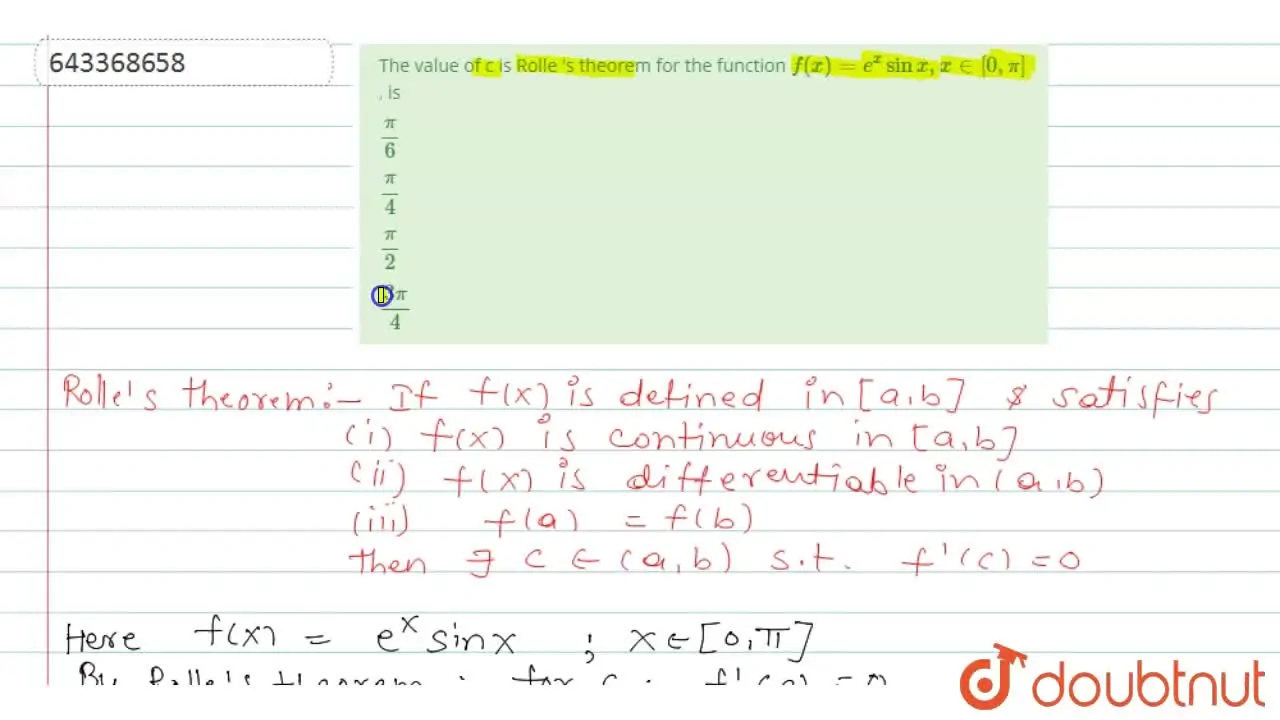The value of c is Rolle 's theorem for the function f(x)=exsinx,x∈[0,π] , is
π6
π4
π2
3π4
The correct Answer is:D
Step by step video, text & image solution for The value of c is Rolle 's theorem for the function f(x)=e^(x)sinx,x in[0,pi] , is by Maths experts to help you in doubts & scoring excellent marks in Class 12 exams.
Related Playlists
- BOOK - ICSECHAPTER - CONTINUITY AND DIFFERENTIABILITY EXERCISE - MULTIPLE CHOICE QUESTIONS56videos
CONTINUITY AND DIFFERENTIABILITY
- BOOK - ICSECHAPTER - APPLICATIONS OF DERIVATIVES EXERCISE - Multiple Choice Questions47videos
APPLICATIONS OF DERIVATIVES
- BOOK - ICSECHAPTER - DETERMINANTS EXERCISE - Multiple Choice Questions37videos
DETERMINANTS
Similar Questions
Verify Rolles theorem for the function: f(x)=sinx−sin2x on [0, π]
View SolutionVerify Rolles theorem for the function: f(x)=sinx−sin2x on [0, π]
View SolutionThe value of c in Rolle's theorem for the function f(x)=x3−3x in the interval [0,√3] is
View SolutionThe value of c in Rolle's theorem for the function f(x)=x3−3x in the interval [0,√3] is
View SolutionVerify Rolle's theorem for the following function f(x)=e−xsinx∈[0,π]
View SolutionVerify Rolles theorem for function f(x)=sinx−sin2x on [0, π]
View SolutionThe value of c in Rolle's theorem for the function f(x)=x(x+1)ex defined on [−1,0] is
View SolutionVerify Rolle's theorem for the function f(x)=x2+2x−8,x∈[−4,2].
View SolutionFind the value of c in Rolle’s theorem for the function f(x)=x3–3x∈[–√3,0].
View SolutionVerify Rolles theorem for the function: f(x)=sinx+cosx−1 on [0, π/2] .
View Solution


